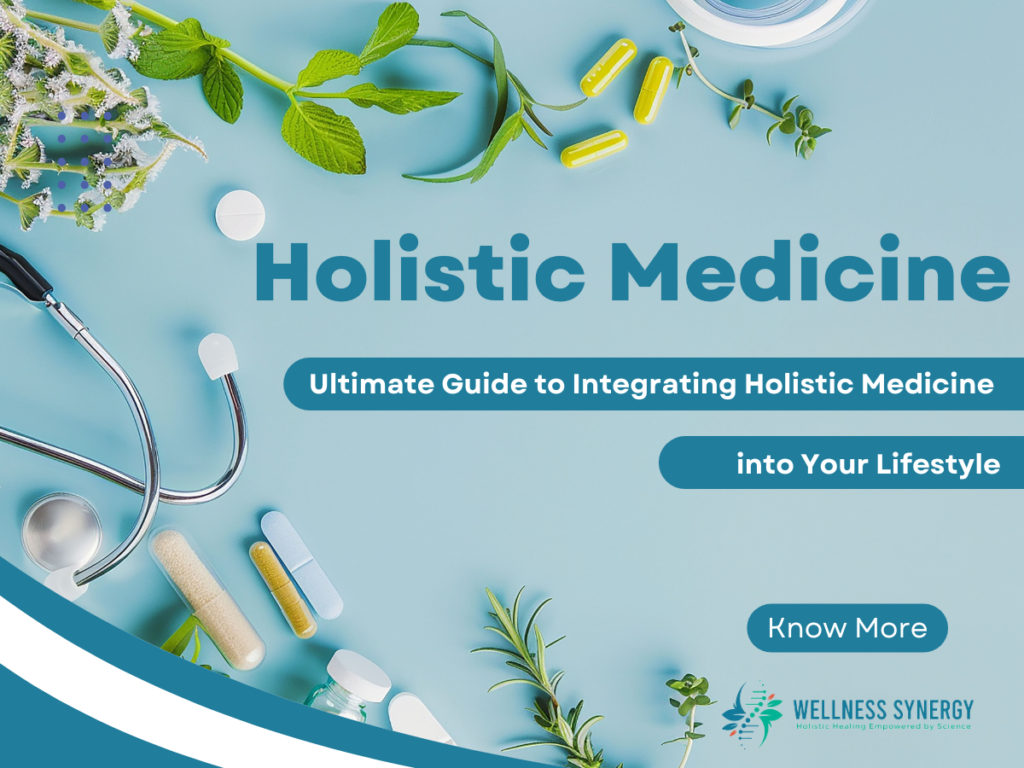Ultimate Guide to Integrating Holistic Medicine into Your Lifestyle
Holistic medicine is a way of improving health by looking at the whole person—body, mind, and spirit—rather than just focusing on specific symptoms or illnesses. Unlike traditional medicine, which often treats individual problems, holistic medicine works to balance your entire body to support overall well-being.
Many people are turning to this approach because it offers more natural and personalized ways to stay healthy. However, with so many options available, it can feel overwhelming to get started. This guide will explain what holistic medicine is, its benefits, and simple ways to add it to your daily life.
What Is Holistic Medicine?
Holistic medicine focuses on treating the root causes of health problems instead of just managing symptoms. It looks at how the body, mind, and spirit are connected and works to balance these areas for better overall health. This approach often includes natural remedies, healthier eating, lifestyle changes, physical therapies, and support for mental and emotional well-being.
Some key practices within holistic medicine include:
- Herbal medicine: The use of plants or plant extracts to improve health.
- Acupuncture: Inserting thin needles into specific points of the body to improve energy flow and alleviate pain.
- Chiropractic care: Adjusting the spine to correct alignment issues.
- Massage therapy: Using touch to relieve tension and promote relaxation.
- Meditation and mindfulness: Techniques to calm the mind and reduce stress.
- Yoga: A practice combining physical postures, breathwork, and meditation to promote flexibility and mental well-being.
Why Choose Holistic Medicine?
There are many reasons why people are choosing holistic medicine over conventional approaches, including:
1. Focus on Root Causes
Holistic medicine emphasizes understanding and addressing the underlying causes of health issues rather than masking symptoms. This approach often leads to more sustainable and meaningful health improvements.
2. Individualized Care
Holistic practitioners recognize that each person is unique. Treatment plans are tailored to your specific needs, preferences, and lifestyle, ensuring that care aligns with your overall goals for wellness.
3. Preventive Health
By promoting balance and addressing potential issues early, holistic medicine helps prevent chronic conditions and supports long-term health. It encourages proactive care rather than reactive treatments.
4. Integration of Natural and Conventional Approaches
Holistic medicine often combines natural remedies, lifestyle modifications, and conventional treatments when necessary, offering a balanced and well-rounded path to healing.
5. Mind-Body Connection
Recognizing the interplay between emotional, mental, and physical health, holistic medicine incorporates practices like stress management, mindfulness, and emotional support to foster overall well-being.
6. Patient Empowerment
Holistic practitioners prioritize education and collaboration, empowering you to take an active role in your health journey. This partnership encourages informed decision-making and fosters a sense of agency over your wellness.
7. Safe and Gentle Approaches
Holistic therapies often utilize non-invasive, gentle treatments, reducing the likelihood of side effects. Techniques like nutritional counseling, bioenergetic scans, acupuncture, and herbal medicine support the body’s natural holistic health healing processes.
8. Sustainable Lifestyle Changes
Holistic medicine encourages positive lifestyle changes that promote long-term health. This includes guidance on diet, exercise, sleep, and stress management, which can lead to lasting improvements in your quality of life.
9. Alignment with Personal Values
For many, holistic medicine aligns with their values of natural living, environmental consciousness, or spiritual growth, making it a more fulfilling approach to health care.
10. Whole-Person Healing
By addressing the physical, emotional, and spiritual aspects of health, holistic medicine fosters a sense of harmony and balance, leading to improved overall well-being.
How to Integrate Holistic Medicine into Your Lifestyle
Holistic medicine is all about treating the whole person—body, mind, and spirit. It focuses on balance and finding natural ways to support your health. Here’s how you can start using holistic medicine in your daily life:
1. Eat for Health
Focus on fresh, whole foods like fruits, vegetables, lean proteins, and healthy fats. Avoid processed foods and sugar as much as possible. Drink plenty of water to stay hydrated.
2. Stay Active
Move your body every day. You don’t need a fancy gym—walking, yoga, or dancing work just as well. Regular movement keeps your body strong and helps reduce stress.
3. Sleep Well
Good sleep is essential for health. Create a calming bedtime routine, avoid screens before bed, and aim for 7-9 hours of rest each night.
4. Manage Stress Naturally
Try meditation, deep breathing, or journaling to manage stress. Spend time in nature or do activities that make you happy and calm.
5. Use Natural Remedies
Consider herbal teas, essential oils, or supplements to support your health. Always check with a professional before starting anything new.
Conclusion
Holistic medicine offers a comprehensive and natural approach to improving your health. By focusing on the balance of the body, mind, and spirit, you can create a lifestyle that supports your overall well-being. Integrating practices like nutrition, herbal remedies, exercise, and mindfulness into your daily routine can help you lead a healthier, more balanced life.
At Wellness Synergy, we’re here to support you on this journey. Whether you begin by drinking a calming cup of herbal tea or taking a few minutes to meditate, small changes can improve your health. Holistic medicine isn’t a quick fix, but a sustainable way of living that encourages long-term health and wellness. Why not start today?


